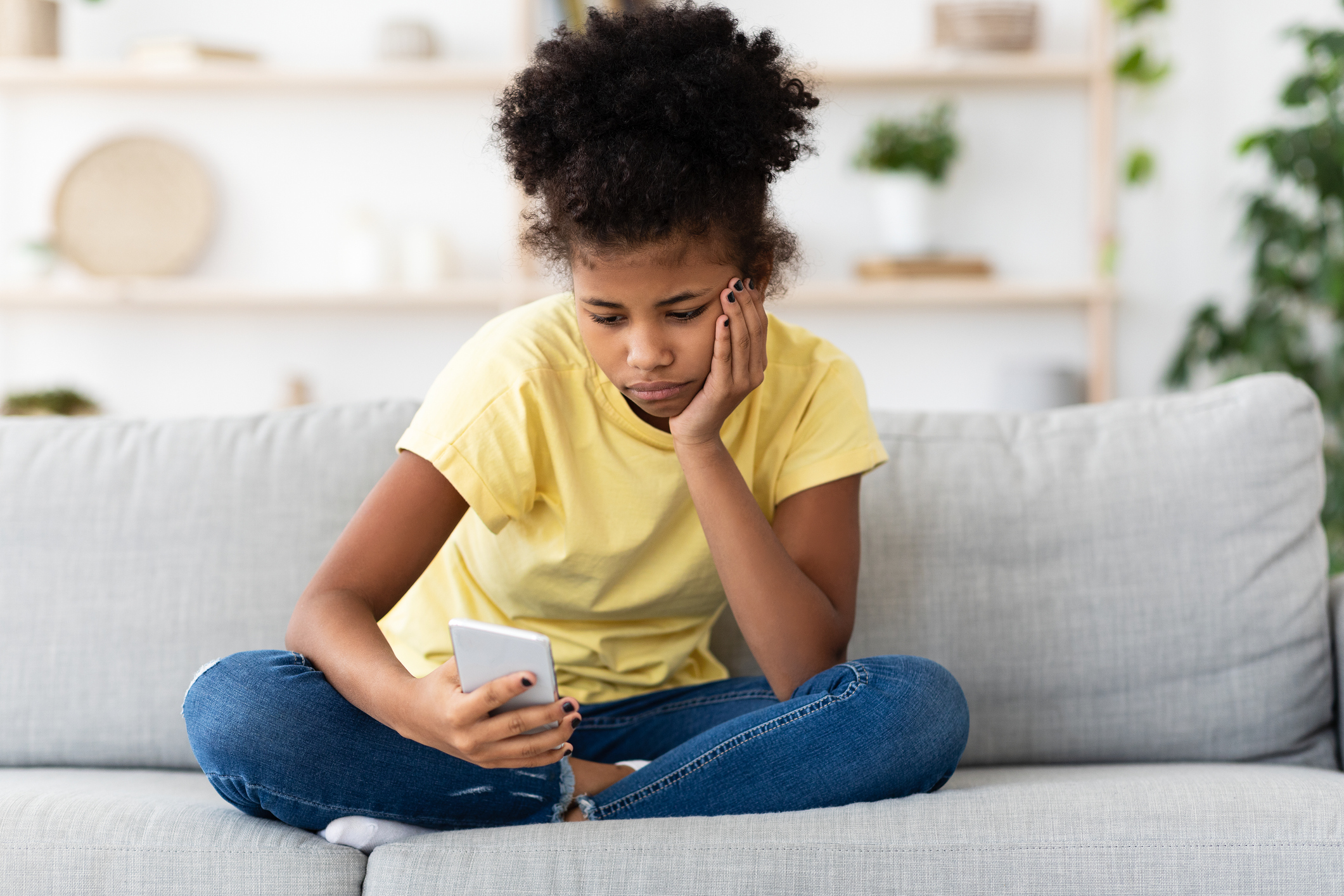
How young is too young for social media? Most social media platforms allow users to join at the age of 13. But that doesn’t necessarily mean they are old enough to safely understand and navigate these platforms, especially considering the impact social media could have on their emotional health.
The loaded question of how young is too young, can depend on the child’s maturity level and other, factors. Let’s dive deeper into this controversial question regarding social media and children.
Allowing Kids To Join Social Media
Social media is prevalent in today’s society, but especially among teenagers. As children get older, their peers may pressure them to fit in and join social media platforms – “all of the cool kids are doing it.”
Are They Old Enough?

This increasing pressure to join social media platforms is happening at a much younger age. Until kids are old enough to comprehend the dangers and negative impacts that social media can have on them, they are much too young to be using these websites and apps.
Although the official age that children can join social media is 13, many argue that platforms should increase this age to 16 or older. For those who aren’t yet mature enough to grasp the complexities of social media, the dangers can be exponentially worse.
Factors to Consider
When deciding if your kids are ready to join social media, gauge their level of maturity. Social media can be dangerous for younger kids, who are more vulnerable to peer pressure and the unrealistic idealizations of people’s lives portrayed on the internet. Social media users can make their lives look much more appealing than they are, which can be confusing for kids.
The fear of missing out (FOMO) is a genuine concern for children that can lead to depression and insecurities among kids. Why can’t my family go on vacations like that? Why does this person get to visit the mall unsupervised? These factors would likely not be considered if the child didn’t view them on social media sites.
How well your child can handle peer pressure and other negative impacts of social media can play a vital role in your decision. For example, if your child communicates openly and honestly, you may be more likely to trust him on websites and social media. But understand that teens are more susceptible to risky behavior through social normalization of unrealistic expectations by their peers.
Dangers Kids Face Online

The internet can pose many risks to children, including identity theft, cyberbullying, and marketing scams. Once you share information or photos online, you can never entirely erase them. There are plenty of instances where a deleted photo resurfaces and can cause concern.
Digital Predators
If you or your children are active on TikTok, you might have heard about the trend of parents no longer posting videos of their children. Many parents on TikTok have risen to viral fame through cute videos of their children, but some have grown concerned about inappropriate comments and suspicious followers.
When your child is doing something cute or funny, your first instinct might be to take out your phone and film her. You want to share the love with others, but you have no way of controlling exactly who will see it — or what they’ll do with it.
Many parents are exercising increased caution — ither blurring out their children’s faces in photos or not posting them in a public feed at all. When your children are too young to be on social media themselves, they’re certainly too young to consent to having their photo posted.
Privacy Settings

If you do choose to post photos of your children or allow them to have their own accounts, it’s essential to check your privacy settings. Make your accounts private to allow access only for approved friends and family.
Ensure the background of your photos doesn’t contain any personal information that identity thieves could use to their advantage. Don’t post about being on vacation, which advertises that your home is empty while you’re away.
It can be tempting to share milestones in your children’s lives. You might want to share the photo of your child passing their driving test, but you should not display that personal information for online predators to find.
Many parents underestimate the dangers that sharing photos of their children can bring online. So, think twice before you share information that exploiters could use to your detriment.
Mental Health & Development Concerns
While social media can seem somewhat harmless for your teenager to pass the time, it can also be dangerous, even if he knows how to use it safely. Social media sites can lead teens to feel more lonely than connected. By making connections online, teens can disengage from physical and social interaction, making them feel isolated and more alone.
At young ages, children benefit more from activities that don’t involve technology. Outdoor playtime provides vitamin D, an essential nutrient for immune and mental health. Toys and puzzles help develop motor and communication skills. And anything you do as a family can foster important social skills and strong bonds.
No matter how old your children are, if you allow them to use social media, you should consistently monitor their screen time and limit it when possible to avoid these negative impacts on their mental health.
Monitoring a Child’s Accounts

Sites like Instagram have ways that you can monitor your child’s profile under your account. This might be a good option for you to ease your child into social media with your guidance and support, until she’s ready to have her own profile independently.
Ensure you set an example with your own profile and remember that you aren’t invading their privacy, you are protecting them from themselves — there’s a difference.
Teenagers older than 16 are less likely to participate in online bullying and fall for scams targeted at their age range. With the proper guidance and education about the dangers of social media and a digital presence, you can equip your kids with the knowledge they need to navigate social media safely.
Children Joining Social Media
Social media is everywhere. No one can tell you what the appropriate age is for children to join any platform. Whether you have a teenager who is technically old enough to join, or you have youngsters who are just too cute not to share online, there are many risks to consider.
To ensure your kids are safe and protected online, you can monitor their social media accounts and limit their screen time. If you don’t feel they’re old enough to have an account, stand firm in your decision. Consider discussing the dangers kids can face online so that you can revisit the topic when they’re a bit older. It may seem unfair at first, but your child’s safety should be your top priority.




